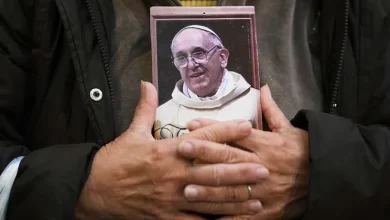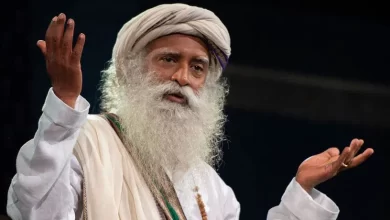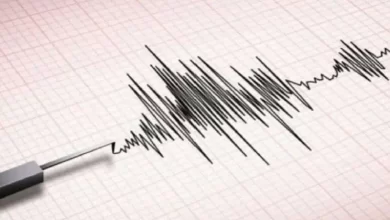Biden and Trump spar over East Palestine train disaster in US
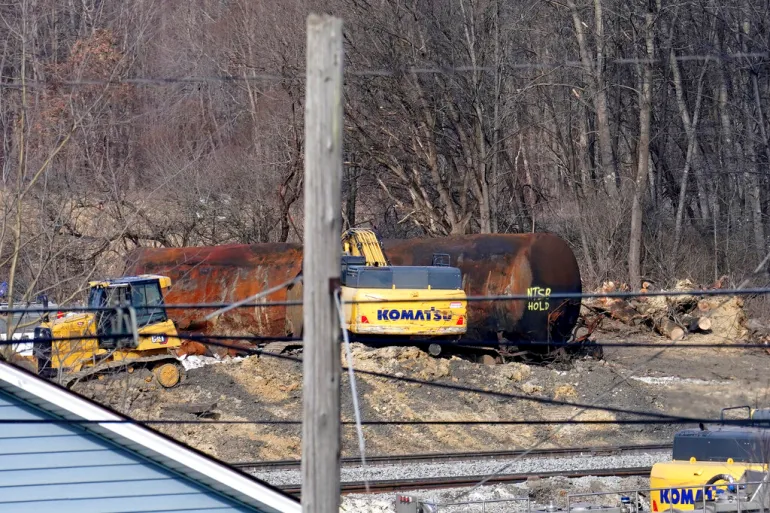
Labour groups have said cost-cutting measures by railroad companies have occurred under Democrats and Republicans.
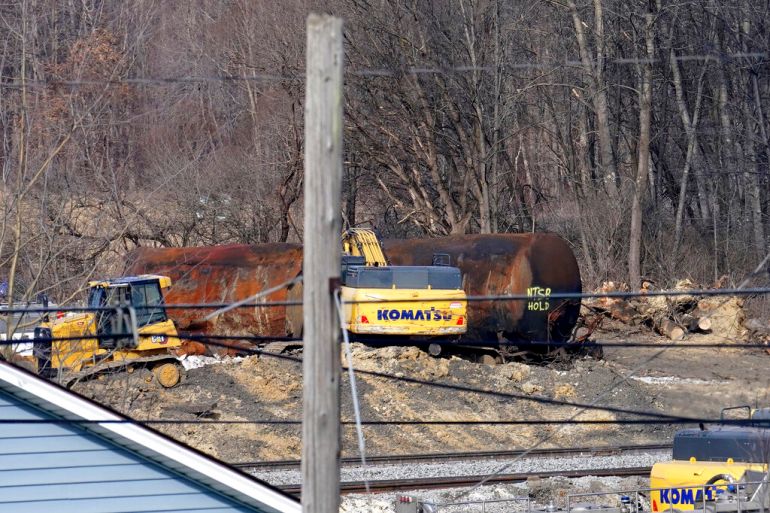
United States President Joe Biden and former President Donald Trump have traded accusations following the derailment of a train carrying toxic materials in the town of East Palestine, Ohio, earlier this month.
Speaking during a visit to the town on Wednesday, Trump said the residents had experienced a “great betrayal” and accused the Biden administration of failing to mount a robust response after the February 3 accident spurred fears of air and water contamination.
The Biden administration hit back, pointing out that, during Trump’s tenure, the government rolled back regulatory standards requiring trains carrying hazardous materials to be equipped with more sophisticated brake systems.
“Congressional Republicans and former Trump administration officials owe East Palestine an apology for selling them out to rail industry lobbyists when they dismantled Obama-Biden rail safety protections,” White House Deputy Press Secretary Andrew Bates said on Wednesday, referring to steps taken during the administration of Democrat Barack Obama, under whom Biden served as vice president.
Trump and Biden could square off against each other in the 2024 presidential election if they are both selected as the nominee for their respective party. Trump launched his campaign in November.
While Biden has yet to declare his candidacy, he is seen as the likely candidate for the Democratic Party. Trump, meanwhile, is being challenged for the nomination in the Republican Party by candidates like Nikki Haley, the former US envoy to the United Nations, though Trump still holds substantial influence among the party’s voters.
During his visit to East Palestine, Trump said the town had been shown “indifference and betrayal” after the train derailment, which prompted evacuation orders for hundreds of residents.
The Biden administration has defended its response, stating that government entities including the Environmental Protection Agency (EPA) and the National Transportation Safety Board arrived at the crash site within hours.
On February 8, the state government said in a press release that residents could “safely return home”.
“I’m asking they trust the government,” EPA administrator Michael Regan said during a visit last week. “I know that’s hard. We know there’s a lack of trust.”
The EPA has said that testing inside homes near the crash has not shown contamination of drinking water or air, but Ila Cote — a toxicologist who worked at the EPA for nearly 30 years, carrying out disaster risk assessments — told the Reuters news agency that assessing potential long-term damage is complicated.
“The data on cancer risk from a single high exposure is not good,” Cote said. “But it would certainly be safe to say that, if people had been highly exposed to vinyl chloride, they would incur increased risk of cancer.”
Some labour groups say that the derailment — and the resulting safety concerns — are representative of trends pushed by rail companies under both Democratic and Republican administrations, including weakened regulatory standards and a workforce stretched thin by staffing cuts.
In a letter to the Federal Railroad Administration following the crash, the president of the AFL-CIO Transportation Trades Department urged “greater federal oversight” of rail operations.
“For far too long, freight rail workers and unions have sounded the alarm about dangerous cost-cutting practices in the freight rail industry that pose real threats to workers and public safety,” the letter states.
In December 2022, Biden signed a bill imposing a contract on rail workers after negotiations between worker unions and railroad companies broke down and the threat of a nationwide strike loomed.
The bill included a pay increase for workers but did not address other issues, such as quality of life and paid sick leave. An amendment to the bill that would have included seven days of paid sick leave for railroad workers — a demand rail companies that had refused to consider — failed to pass the US Senate, with 42 Republicans and one Democrat voting it down.
Biden defended the final deal as “better than anything” railroad workers had ever received and said a strike would have paralysed the economy.
Labour groups pointed out that railroad companies had cut staffing by more than 30 percent in a six-year period, while enjoying rising profits and engaging in stock buybacks.

